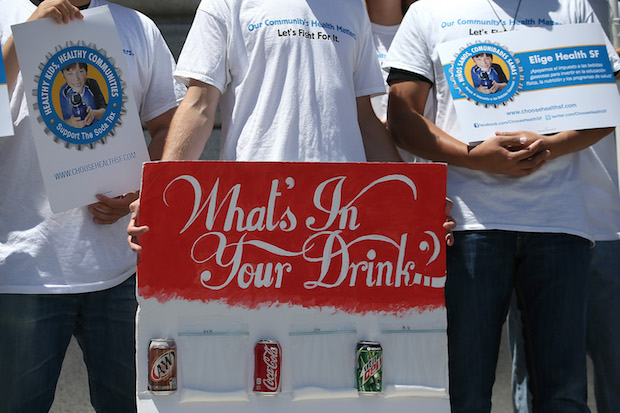George Osborne’s announcement in the Budget that he wants to help fight childhood obesity through a tax on sugary drinks has provoked the usual grumbles. But this is not a ‘pious, regressive absurdity’, as some claim. It is practical action that will help to tackle an avoidable health disaster for the nation’s children, a quarter of whom from the most disadvantaged families are leaving primary school not just overweight but obese. This is double the rate for the most advantaged children and the inequality gap is rising every year. If that had no consequences for them, there would be no case for action, but obesity blights their future health and life chances. It also adds to the rising and unsustainable bill for the NHS of at least £5bn per year.
Finally, the manufacturers and importers of sugary drinks have an incentive to reduce the sugar content of their products so that they are below the 5 or 8g/100ml thresholds if they are to avoid paying increasing levels of levy.
‘Why pick on sugary drinks?’ bleat some of the manufacturers. Of course they are not the only cause, and this measure wouldn’t work in isolation, but sugary drinks are the single biggest source of sugar intake in older children and teenagers’ diets, making up around 29% of the total. These are wasted calories with no nutritional value whatsoever. Sugary drinks are also rotting children’s teeth and, at a time when admission for dental extraction is also the leading cause for hospital admission for young children, isn’t it time that manufacturers took some responsibility?
I hope they were listening to the Chancellor as he pointed out that passing the levy on in the form of a price differential at point of sale would have a further impact on consumption. In Mexico, there was a 17% fall in sales of sugary drinks amongst the heaviest users one year after a modest differential in the form of a sugary drinks tax. It is childhood obesity that is regressive, not a levy that will make a positive difference, especially because it will most benefit disadvantaged children through doubling the school sports premium and funding for breakfast clubs.
Manufacturers may choose to swallow the costs themselves, but the tax could still push them to get on with cutting down on the amount of sugar in their products, in the same way as we have successfully cut back on salt in food.
This is a victory for children’s health and manufacturers and retailers should now step up to the plate, show that they understand the scale of the problem, embrace the change and prioritise the health of their customers.






Comments